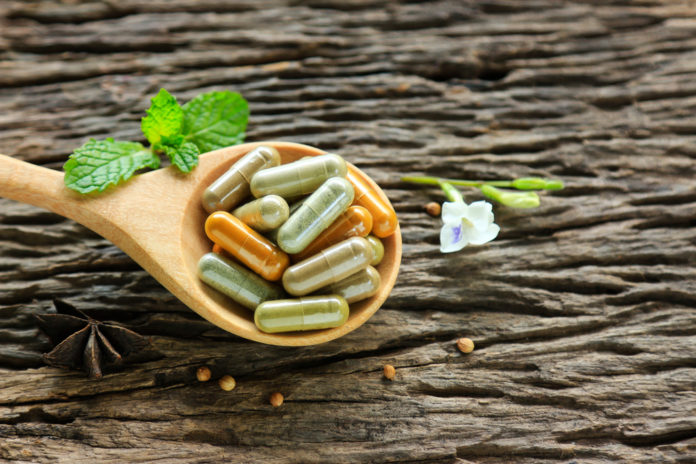It is estimated over one-third of all prescription drugs are used by seniors. While medications lend benefit to their users, and even be life-saving, mishandling them can lead to a myriad of health concerns.
But you may not realize what you eat can impact the effectiveness of medications prescribed to and regularly taking. Not only can these interactions cancel out the value of certain drugs, but lead to a host of negative consequences.
Luckily, knowing what food-drug interactions are and managing appropriately can lead to safe and successful use.
What Are Food-Drug Interactions?
Also known as drug-nutrient interactions, food and drug interactions are defined as the complex relationships between a drug and a nutrient in the body.
Such interactions occur primarily based on digestive and absorption processes, in which foods and drugs must be broken down and metabolized by specific enzymes. They essentially compete for absorption if both are present and medications are likely to be compromised, including completely ineffective or even become concentrated and toxic to the body.
Drugs can also interfere with someone’s nutritional status, including by interfering with the absorption of a nutrient. Some drugs can affect the body’s use of certain nutrients and potentially cause a nutrient deficiency, while others can alter nutritional status by decreasing or increasing appetite.
Failure to identify these interactions can lead to some serious risks, though there are a number of steps to prevent such negative consequences.
The Risks of Food and Drug Interactions
Not using medications as directed, including in the presence of a known food interaction, may cause:
- Nausea and vomiting
- Dehydration and malnutrition
- Muscle pain and discomfort
- Headaches
- Agitation
- Drug toxicities or decreased effectiveness
- Changes in food intake and appetite
- Changes in urinary and/or bowel patterns
- Death
Preventing Food-Drug Interactions
Luckily, such interactions can be minimized and prevented by:
- Recording all medications and keeping the list up-to-date.
- Documenting over-the-counter drugs and supplements, including NSAIDs, vitamin and minerals, fiber supplements, and allergy medications.
- Bringing a compiled list of medications currently prescribed to and taking during doctor visits.
- Disclosing whether or not you drink or smoke.
- Working with an interdisciplinary team, including with a primary care provider, pharmacist, and dietitian
- Knowing and understanding common food and drug interactions.
Common Food-Drug Interactions
Grapefruit Juice
Grapefruit juice is one of the more familiar food and drug interactions and implicated for a number of common medications, including statins, antihypertensives, allergy medications, antidepressants, pain meds, and stomach acid-blocking drugs.
While the exact mechanism detailing its impact on medications is still up for exploration, grapefruit has shown to lower enzymes in the liver responsible for breaking down medication. The interference can increase the dosage levels of such drugs and result to toxicity.
Dairy Products
Milk, yogurt, cheese, and other dairy products can delay or prevent the absorption of some antibiotics, including tetracycline.
This occurs because the calcium binds to the antibiotics in the stomach and upper small intestine to form an insoluble compound, thus decreasing the efficiency of the medications. However, taking an antibiotic an hour before or two hours after a meal can help ensure the drug reaches the bloodstream and treats the infection.
Leafy Greens
Spinach, kale, and other leafy greens are rich in vitamin K, a vitamin that plays a large role in blood clotting. Vitamin K may interfere with role of anticoagulants, which helps to prevent blood clots from forming.
Interestingly, though, concerns arise with dramatic influxes of vitamin K intake and health experts encourage to eat greens in consistent amounts on a day-to-day basis.
Tyramine-Containing Foods
Tyramine is an amino acid that helps regular blood pressure. It is naturally found in the body and a dietary component in a variety of foods, including cured and smoked meats, strong and aged cheeses, fermented foods such as sauerkraut, soybeans and their products, dried and overripe fruits, processed lunch meats, and alcoholic beverages mostly on top.
MAO monoamine oxidase inhibitors (MAOIs), which is used to treat depression, interferes with the breakdown of tyramine. A low-tyramine diet is advised when taking MAOIs, as the combo can cause a serious spike in blood pressure and be a medical emergency.
Natural Black Licorice
Glycyrrhiza, which is a natural ingredient used to make black licorice, has shown to deplete potassium and increase sodium retention. If taking digoxin, which is used to treat congestive heart failure, low levels of potassium can increase its side effects, including serious and life-threatening changes in heart rhythms.
The anticoagulant warfarin is also a major interaction of concern, along with estrogens, diuretics, and many other medications according to WebMD.
Herbal Supplements
Along with foods, herbal supplements can also interfere with certain medications, including those taken for diabetes and heart health. Common interactions include:
- Gingko Biloba
- Garlic
- John’s Wort
- Milk Thistle
- Echinacea
- Ginseng
Ultimately, food and drug interactions vary based on the medication or supplement prescribed to or regularly taking. Using them specifically as directed on the label and coordinating instructions with a healthcare team can help ensure safe and effective use.






